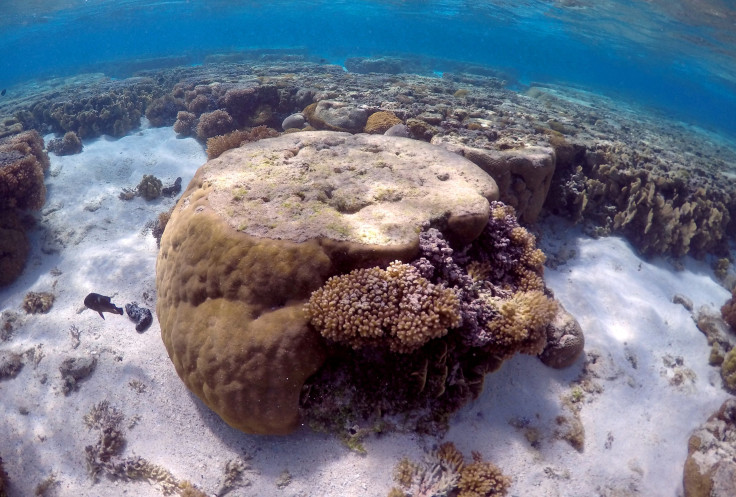Coral Reefs And Climate Change Facts: Massive Bleaching Event May Be Coming To An End

A forecast of ocean temperatures worldwide indicates the widespread coral bleaching event that was declared in 2015 is likely coming to an end, the National Oceanic and Atmospheric Administration reported.
The most recent forecast shows widespread bleaching has stopped in the Atlantic, Pacific and Indian Ocean basins meaning the trend worldwide is likely coming to an end. With data collected by geostationary and polar-orbiting satellites, NOAA scientists were able to examine ocean temperatures and identify the areas at risk and the patterns of bleaching events. Additionally, scientists plan to monitor ocean temperatures for the next six months to confirm the end of the event, a release from NOAA said.
Read: Your Sunscreen May Be Killing Coral Reefs, Here's A List Of Eco-Friendly Products
What is coral bleaching?
Ocean corals need specific conditions to thrive. When they’re exposed to warm waters or rapidly changing environments, like an increase in pollution or overexposure to the sun, the corals can lose the algae living in their tissues. Those algae give the coral its vivid color, so once they’re gone the coral turns a shade of white and considered “bleached.” This puts the corals under stress and makes it more likely the coral will die, NOAA said.
The bleaching event that researchers suspect is coming to an end is the third global bleaching event on record, the first occurred in 1998 and the second event occurred in 2010. But the event that began in 2015 has been the most widespread of the three. All of the tropical coral reefs in the world saw heightened temperatures and more than 70 percent of those corals suffered from prolonged high temperatures, the kind that causes bleaching. “NOAA is working with scientists, resource managers and communities around the world to determine what the true impacts of this event will be on coral reefs,” Mark Eakin, Coral Reef Watch Coordinator at NOAA, said in a release.
The Great Barrier Reef suffered severe bleaching earlier this year following a 2016 coral bleaching event, the events left more two-thirds of the reef severely damaged, the Arc Center of Excellence for Coral Reef Studies found. These two events gave the reef little to no time to recover meaning it could hit a point of no return.
Read: Coral Bleaching Spreads On The Great Barrier Reef
Why are healthy coral important?
Healthy coral reefs support ocean ecosystems and provide protection for ocean life and coastlines alike. The reefs help minimize the impact of waves and storms along coastlines while providing habitats for marine life as well as essential nutrients and foods for those ecosystems. Some reefs can come back from a bleaching event if the water temperatures return to normal fairly quickly.
Reefs in Hawaii, Florida and the Caribbean are big tourist attractions and still may be at risk for bleaching later in the summer. NOAA will continue to monitor the warming ocean temperatures and bleaching events. The heat stress outlook is available online and will calculate the risk factor for a bleaching event in the next four months.
© Copyright IBTimes 2024. All rights reserved.





















